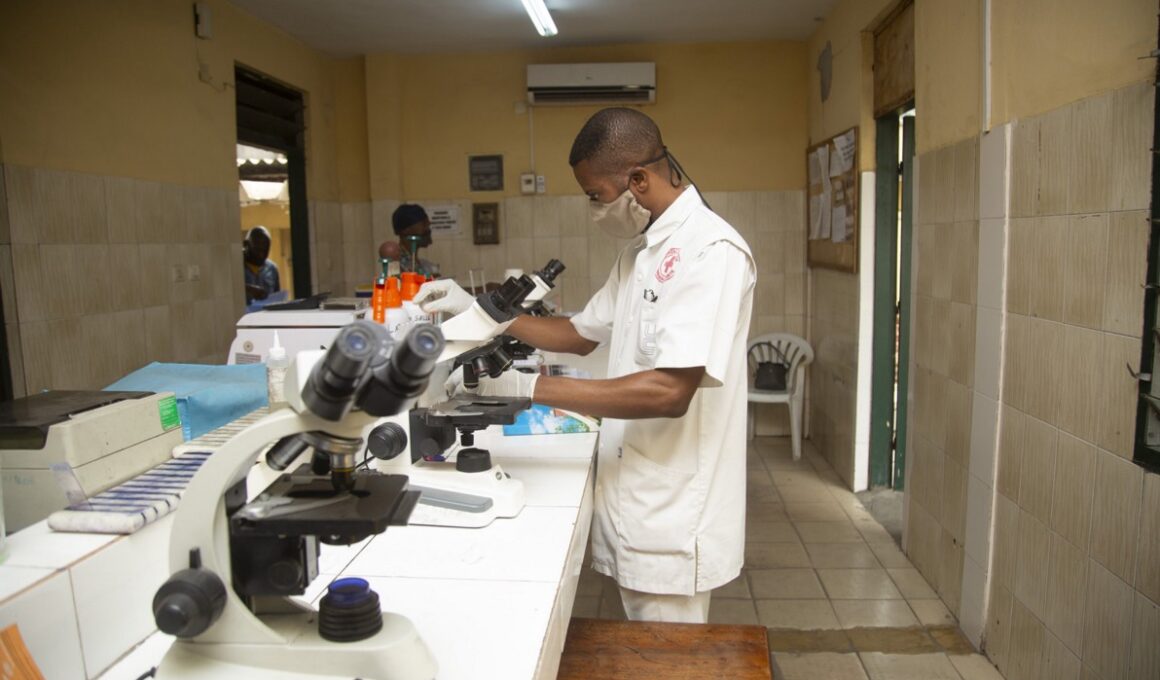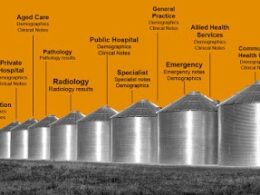Health Policy Watch
Geneva Health Forum 2022
Elaine Ruth Fletcher
15/04/2022
Nathalie Strub-Wourgaft, a senior scientist at the Drugs for Neglected Disease Initiative (DNDi) has a vision that could be critical to halting the next pandemic — but is esoteric, difficult to organize and even more challenging to build the trust and buy-in needed to make it really work.
The vision is of a common clinical-trial archives — which would store clinical trial research data on emerging and neglected disease threats — so that other researchers could draw on the primary data to examine new research questions as they emerge.
The vision is of a common clinical-trial archives — which would store clinical trial research data on emerging and neglected disease threats
The issue, which is also the focus of a draft World Health Assembly resolution sponsored by the United Kingdom, will be the focus of a special DNDi-coordinated panel session of the Geneva Health Forum, which meets 3–5 May in Geneva for its 2022 edition .
The session, entitled “Data-Sharing in the Time of COVID: What Works and What We Need” features Strub- , who is coordinating DNDi’s ANTICOV Consortium of multi-country clinical trials testing treatments in low-income settings; along with Rob Terry, of the TDR, Special Program for Research and Training in Tropical Diseases.
The session also includes Naomi Waithira, Head of Data Management, Mahidol Oxford Research Unit and Philippe Guérin, Director of the Infectious Diseases Data Observatory (IDDO), an independent platform for clinical trial data-sharing, housed at Oxford University, which is co-sponsoring the symposium.
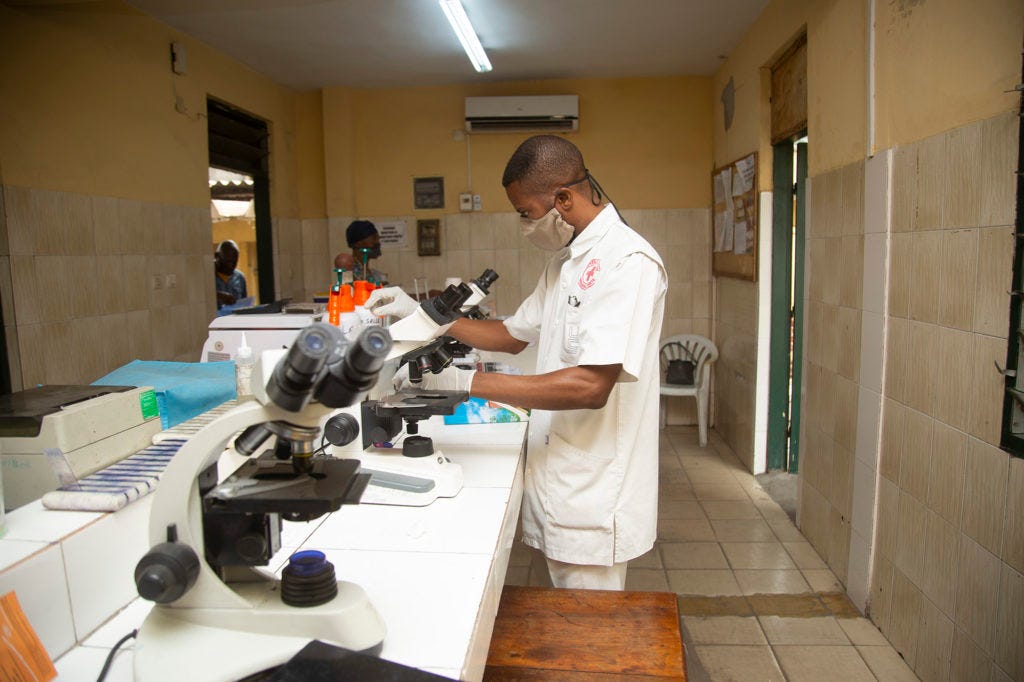
What is the problem? COVID outpatient studies as an example
The sad state of studies on outpatient treatments for COVID patients provides and illustration of the problem that Strub-Wourgaft aims to address, together with her other colleagues.
“For outpatients, we’ve had thousands of studies that have looked at outpatient treatments,” said Strub-Wourgaft.
“Many were underpowered” — meaning that they lacked enrollment of sufficient numbers of people to yield statistically significant results.
Unlike hospital-based studies, which naturally have a large pool of patients to draw from, outpatient studies are often undertaken by independent working from smaller clinics, and enrolling a comparatively small sample size of patients.
While such studies sometimes can provide proof of concept — they don’t usually yield the kinds of definitive results that can lead to national or global policy recommendations.
Unlike hospital-based studies, which naturally have a large pool of patients to draw from, outpatient studies are often undertaken by independent working from smaller clinics, and enrolling a comparatively small sample size of patients.
“So how do you make sense of this? We know many of the small-sized studies could not bring evidence to anything. Having a good system of data-sharing in place, however, would have helped a great deal.
We know many of the small-sized studies could not bring evidence to anything. Having a good system of data-sharing in place, however, would have helped a great deal.
She cites the big debate over the controversial treatment with ivermectin as one such example– where a plethora of small-scale studies led to conflicting results — and lots of debate — until very recently after results of a larger scale trial in Brazil were finally published .
She cites the big debate over the controversial treatment with ivermectin as one such example– where a plethora of small-scale studies led to conflicting results — and lots of debate — until very recently after results of a larger scale trial in Brazil were finally published .
“It was studied all over the place, with all dose regimens” she points out, but the diversity of data only fueled the fires of controversy.
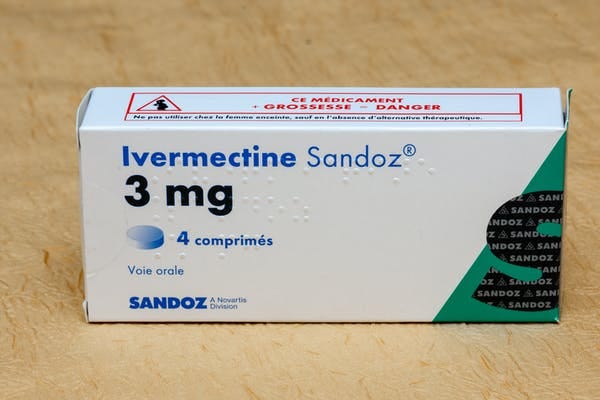
The often bitter debate over efficacy could have been settled long ago with more conclusive evidence that the drug was not efficacious as a COVID treatment — had the smaller outpatient trials on mildly ill patients been linked up together systematically — with common methods, dose regimes, measurement and outcome standards at the individual patient level..
To link disparate trials of any type of treatment, “There needs to be analysis at individual patient level,” she points out. “This is where you get the best signals. It’s now being promoted [as an approach] but too late.”
For instance, even the smallest discrepancies, such as the different formats that may be used for entering a patient’s date of birth — in the American style of 04–14–1990 as compared to the European, Asian and African 14–04–1990, can befuddle attempts to rapidly compare clinical trial data from disparate studies very easily — and thus draw more robust conclusions about trial outcomes.
For instance, even the smallest discrepancies, such as the different formats that may be used for entering a patient’s date of birth — in the American style of 04–14–1990 as compared to the European, Asian and African 14–04–1990…
And these delays can be deadly in a pandemic when rapid rollout of new treatments is all the more critical, …
And these delays can be deadly in a pandemic when rapid rollout of new treatments is all the more critical, Strub-Wourgaft points out.
“Say that I want to look at the effect of age on a treatment’s efficacy,” said the DNDi scientist. “ If someone is entering the data on age with month-year, someone else with years, someone else day-month-year, how can you consolidate this.. There is a lot of work to be done so that you can pool this information.
“But for any new diseases that emerge in two years, this is something that we should be ready for. We should have our data samples in the same format, so we can pull the data,” Strub-Wourgaft said.
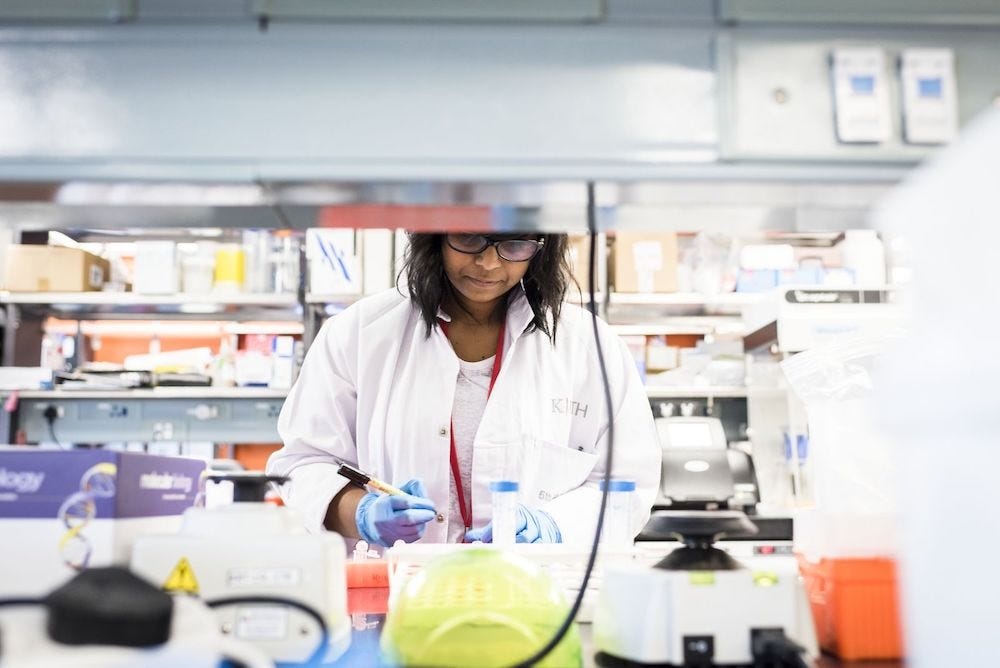
Convincing researchers to share
But developing common templates for data collection for clinical trials of similar drugs or illnesses is almost the easy part of this quest by Strub-Wourgaft and like-minded colleagues.
The even harder part will likely be convincing researchers from both academia as well as the for-profit pharma sector to share their results in a common platform — where potentially other researchers could pool data together, as well as drawing pre-existing data results to examine new questions that emerge, such as the effects of a drug in pregnancy, or safety of a childhood dose.
“There is a lot of work to be done so that you can pool information. It is so important, and sometimes very important signals will only come through the analysis of this pooled data… but it’s still a very relevant message,” Strub-Wourgaft says.
“If not for ethical reasons, for scientific reasons we should share. For COVID, many people are agreeing we should have data sharing, but the devil is in the details, and those are not not in place.”
“If not for ethical reasons, for scientific reasons we should share. For COVID, many people are agreeing we should have data sharing, but the devil is in the details, and those are not not in place.”
And along with common trial protocols and templates, to really begin sharing, you need a data repository, where data can be stored — and shared under the appropriate, safe and confidential conditions sensitive patient data.
And along with common trial protocols and templates, to really begin sharing, you need a data repository, where data can be stored

IDDO — A platform for controlled data sharing
“Where could such a repository be?” she asks rhetorically. “It needs to be in an independent unit. it needs to be fully equipped with the legal and technical infrastructure,” she says.
DNDi, for its part, found a solution in the Oxford-based IDDO, which initially had begun offering just such a repository for sharing of data on clinical trials about NTDs, but now is gradually expanding its reach to COVID treatments too.
She is hoping that DNDi’s example can inspire a broader dialogue and consensus over data sharing in a common repository — at least for NTD treatments and for any treatments that would tackle SARS-CoV2 still mutating variants, as well as other re-emerging or new, emerging pathogens that pose an outbreak threat.
“Today, we are not asked to put anything anywhere,” she points out.
But she hopes that status quo may change, under the new UK initiative in the WHA, supported by WHO, to create a common protocol for data sharing — at least in the case of publicly-funded trials.
“Today, we are not asked to put anything anywhere …
But there are hopes that status quo may change, under the new UK initiative in the WHA, supported by WHO, to create a common protocol for data sharing — at least in the case of publicly-funded trials.
“In the clinical trials resolution being launched by the UK and WHO, we should say that data sharing is a must,” she declared. “The process to facilitate this should be put into place, and funding should be put into place.
“In the clinical trials resolution being launched by the UK and WHO, we should say that data sharing is a must
And in future research efforts supported by public institutions, researchers should agree to pool their clinical trial results as a condition of receiving their funding, she said.
And in future research efforts supported by public institutions, researchers should agree to pool their clinical trial results as a condition of receiving their funding
“The timing of this is sensitive, but I think there should be an agreement. Especially in the case of a pandemic, this is important. Having a sense of speed for a pandemic, it should be a kind of no-brainer.”
Addressing European data rules
Under the IDDO platform, data is not entirely open at all. In fact, the modalities of sharing are still carefully controlled.
If one researcher wants to look at, and use, the data from the clinical trial of another research colleague or institution, then a request is filed via the platform, and the research institution that received the request can still respond with a yes or a no.
Under the IDDO platform, data is not entirely open at all. In fact, the modalities of sharing are still carefully controlled.
Strub-Wourgaft stresses the importance that to be useful, such data needs to be shared at the individual patient level, what is called IPD data in the clinical trial world.
Without precise data on a patient’s age, ethnicity, gender and other factors that can influence trial results, the kinds of more refined analyses that researchers often wish to conduct, become impossible.
Strub-Wourgaft stresses the importance that to be useful, such data needs to be shared at the individual patient level, what is called IPD data in the clinical trial world.
Without precise data on a patient’s age, ethnicity, gender and other factors that can influence trial results, the kinds of more refined analyses that researchers often wish to conduct, become impossible.
Strub-Wourgaft stresses the importance that to be useful, such data needs to be shared at the individual patient level, what is called IPD data in the clinical trial world.
Without precise data on a patient’s age, ethnicity, gender and other factors that can influence trial results, the kinds of more refined analyses that researchers often wish to conduct, become impossible.
Without precise data on a patient’s age, ethnicity, gender and other factors that can influence trial results, the kinds of more refined analyses that researchers often wish to conduct, become impossible.
Arriving at that level of granularity in data-sharing creates other challenges, she admits, particularly with respect to new European data protection rules.
“We are moving into a complicated situation with the European Global Data Protection Rules,” she observes. “Which provides that you will not put patients at risk, via the data that is shared.
“There are growing concerns that we might have to pseudo anonymise the data — because someone could still find out who a patient is, because of available data on data of birth, gender, age, place of location.
“Some push for very extreme interpretations of this.. Removing DOB altogether. But if you do that, then data sharing is really not of much use.
That could make the data unusable. So the protection argument has to be nuanced. If Europe is too cautious about this, you might lose the value of the data.
“There are growing concerns that we might have to pseudo anonymise the data — because someone could still find out who a patient is, because of available data on data of birth, gender, age, place of location.

Pending WHA Resolution on Data-Sharing
Strub-Wourgaft hopes that the pending WHA resolution, whose draft has not yet even been made public, might provide a framework that answers such questions.
Should such a resolution be approved, it would also likely mandate WHO, as the world’s global health authority, to “host” the technical data-sharing entity — whether that is IDDO or a consortium of such entities working together.
Strub-Wourgaft sees TDR, a WHO-based research entity, as the natural candidate as the natural place to legally ‘host’ that repository.
“I would see this as being hosted by TDR, which is WHO and is doing research for WHO,” she says.

Modalities of hosting by TDR
TDR’s Terry is enthusiastic about the concept and direction: “Research funded by TDR shows that on average only 14% of registered clinical trials indicate they will be prepared to share the individual patient data (IPD) underlying a trial.
“And there has also been no improvement in this figure when you look at pandemic diseases (including Ebola, Zika and Covid-19) despite the various calls to share data from Wellcome Trust and partners and the WHO.
He points to the recent TDR findings on this very topic, “Promotion of data sharing needs more than an emergency” published in the Wellcome Open Research Gateway.
In terms of TDR’s own potential role in playing “host” to a global clinical trial data-sharing platform:
“TDR has been involved in facilitating data sharing with the research communities it funds for over 10 years including malaria, Schistosomiasis and other HATs.
And we have been working with IDDO to create the right governance processes for access particularly with regards to Ebola,” he adds, noting that TDR will also be publishing guidance on how to share data for its own staff and researchers in coming weeks.
“TDR has been involved in facilitating data sharing with the research communities it funds for over 10 years including malaria, Schistosomiasis and other HATs.
And we have been working with IDDO to create the right governance processes for access particularly with regards to Ebola
In terms of the nuts-and-bolts infrastructure of such a repository, he said:
“We felt it is better to support existing resources, particularly IDDO, rather than to create our own [data repository] as there is a range of unique skills required to curate and provide access to data in ways that are effective, ethical and equitable.
We felt it is better to support existing resources, particularly IDDO, rather than to create our own [data repository] as there is a range of unique skills required to curate and provide access to data in ways that are effective, ethical and equitable.
IDDO also is not alone in the field either, Terry adds, “There are many [other] types of platforms, including excellent resources such as the Data Compass at LSHTM.
So TDR would rather establish principles of data-sharing and promote the use of these existing resources rather than fragment the sector further.
IDDO also is not alone in the field either, Terry adds, “There are many [other] types of platforms, including excellent resources such as the Data Compass at LSHTM. So TDR would rather establish principles of data-sharing and promote the use of these existing resources rather than fragment the sector further.
“We don’t believe the biggest barrier is infrastructure anymore. It is a resistance to share among the research community, which needs to be addressed through better attribution of data sets (e.g. using a DOI to cite as a reference) and a change in academic assessment to recognise and reward data-sharing.
“We are working with the Research Data Alliance, the European Union and the Global Health Network to keep getting the message across.”
____________________________________________
See the complete GHF 2022 programme. Register here by 15 April for early bird fees: From 15 April to 2 May, fees are CHF 400 for the entire event and CHF 150 for participants from low- and middle income countries (OECD classification). Daily rates are also available.
Check out Health Policy Watch’s ongoing coverage of other themes featured at this year’s Forum on our GHF 2022 microsite:
Image Credits: DNDI/Twitter, Wellcome Trust , IDDO , WHO / Antoine Tardy, WHO/TDR.
Originally published at https://healthpolicy-watch.news on April 15, 2022.
Names mentioned
Nathalie Strub-Wourgaft, a senior scientist at the Drugs for Neglected Disease Initiative (DNDi)
Rob Terry, of the TDR, Special Program for Research and Training in Tropical Diseases.
Naomi Waithira, Head of Data Management, Mahidol Oxford Research Unit
Philippe Guérin, Director of the Infectious Diseases Data Observatory (IDDO), an independent platform for clinical trial data-sharing, housed at Oxford University,




